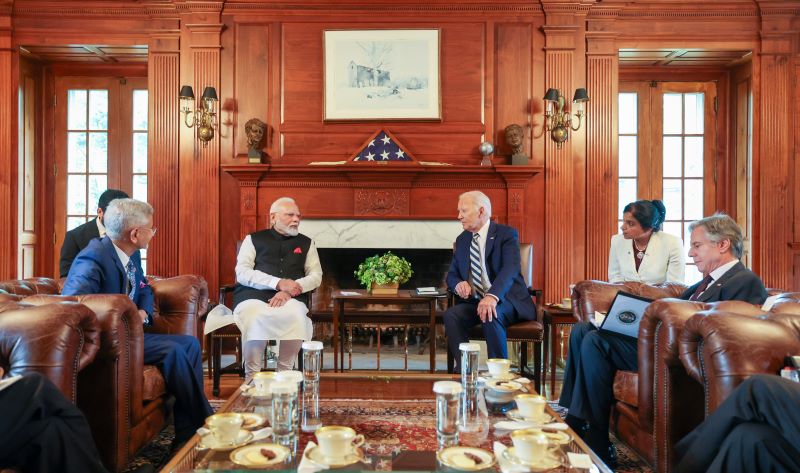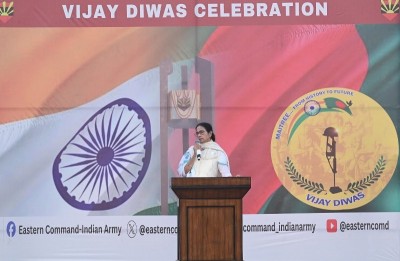
India signs IPEF's agreements on clean energy, climate-friendly technologies, anti-corruption
Delaware: India signed agreements under the Indo-Pacific Economic Framework for Prosperity (IPEF) on Sunday, focusing on clean and fair economies. These agreements aim to boost cooperation on clean energy, climate-friendly technologies, anti-corruption measures, and tax transparency, according to the Commerce Ministry.
The agreements will boost investment, improve the business environment, and promote the development and deployment of green technologies.
In June, 13 IPEF members signed the agreements in Singapore, with India delaying its signing pending domestic approval.
"India has signed its first-ever agreements focused on the Clean Economy, Fair Economy, and the IPEF Overarching arrangement during Prime Minister Narendra Modi's visit to Delaware, USA, on September 21," the Ministry's statement noted.
The clean economy agreement focuses on energy security, reducing greenhouse gas emissions, and promoting technical collaboration to reduce reliance on fossil fuels.
It also aims to bolster investment, project financing, and capacity building for clean energy technologies through initiatives like the IPEF Catalytic Capital Fund and the IPEF Accelerator.
The fair economy agreement seeks to create a more transparent and predictable business environment that fosters trade and investment.
It aims to combat corruption by strengthening anti-corruption frameworks, improving tax transparency, and enhancing the sharing of information for tax purposes.
It also supports India's efforts to tackle corruption, money laundering, and terror financing through joint actions.
India also signed an overarching IPEF agreement, establishing a ministerial-level oversight mechanism for the various agreements and setting broad goals and guidance for IPEF’s activities.
The Union Cabinet had approved these agreements earlier in the month, and the clean economy pact includes plans to reduce GHG emissions and boost investment in green technologies, supported by events like annual Investor Forum meetings.
An ongoing dialogue on critical minerals is also a key part of the framework, focusing on mapping resources, promoting trade, and ensuring sustainable mining practices among IPEF partners.
Launched on May 23, 2022, in Tokyo, the 14-member IPEF bloc represents 40% of global economic output and 28% of global trade.
It is built around four pillars: trade, supply chains, clean economy, and fair economy, with India participating in all except trade.
Members include Australia, Brunei, Fiji, India, Indonesia, Japan, South Korea, Malaysia, New Zealand, the Philippines, Singapore, Thailand, the U.S., and Vietnam.
In November 2023, the IPEF concluded negotiations on clean and fair economies and the overarching IPEF agreement.
These agreements will take effect once at least five members complete their internal legal processes for ratification.
The supply chain agreement was signed earlier in November 2023.
Support Our Journalism
We cannot do without you.. your contribution supports unbiased journalism
IBNS is not driven by any ism- not wokeism, not racism, not skewed secularism, not hyper right-wing or left liberal ideals, nor by any hardline religious beliefs or hyper nationalism. We want to serve you good old objective news, as they are. We do not judge or preach. We let people decide for themselves. We only try to present factual and well-sourced news.







